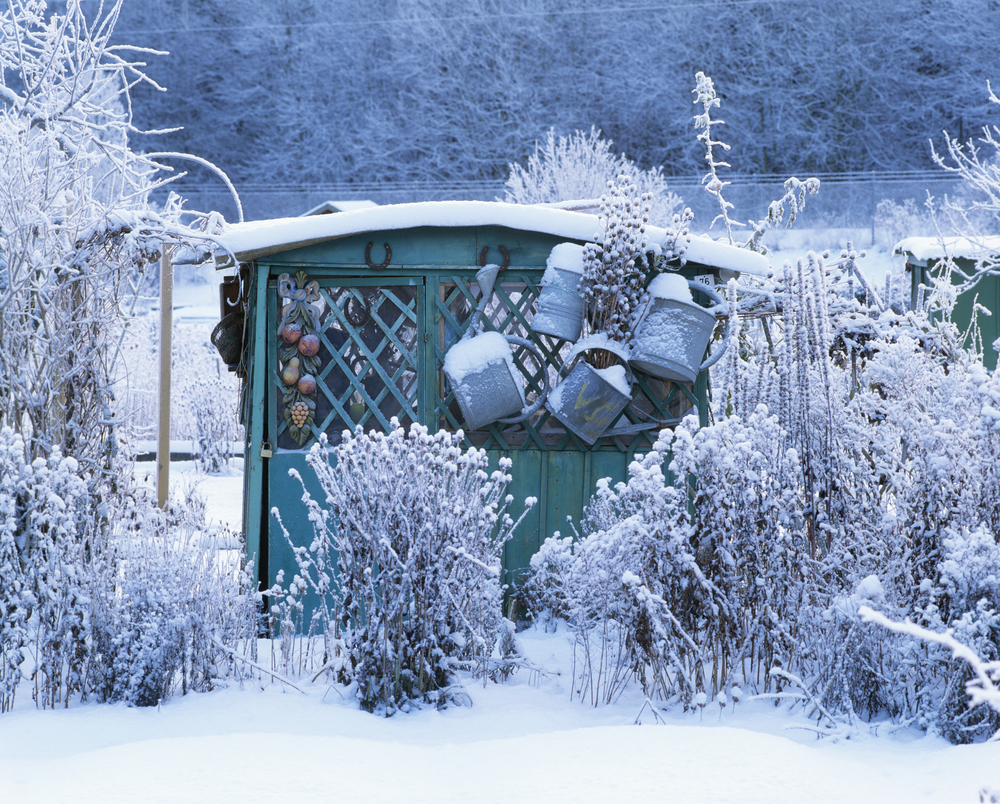When the seasons change, it’s always worth looking at how you can prepare your garden for a change in temperature – whether that’s getting your alfresco dining area spruced, or preparing it for a winter hibernation! The following tips were published on Marshalls.co.uk a few years ago but are still worth a look at when it comes to getting your Guernsey gardens ready for the colder weather.
Garden tidy up
When to prepare your Guernsey gardens for winter? Well, as November turns into December, clearing debris and getting your garden looking as tidy as possible is important. Remove all unwanted matter to your compost heap, cut back perennial plants to soil level and ensure that your potting shed is in order. However, soil will appreciate being left alone as it is living matter and needs protection from the ravages of winter – over digging can remove all of the natural decay that will have helped form a protective top layer.
Protect your plants
Tender plants need to be tucked up safe and warm for winter with a layer of protective insulation. When preparing vegetable gardens for winter, you can use horticultural fleece to wrap around delicate plants in your garden to give them better odds of surviving into the New Year. Preparing your garden for winter is key for protecting your plants. If you’re worried about any particularly flimsy looking plants, now is the time to give them a bit of support with stakes. Potted plants that you think may not weather the frost can be brought indoors for a winter spent in the warmth.
Regular maintenance of driveways and patios
The colder months can bring snow and ice onto patios and driveways. De-icer can be used on these surfaces, however there may be some temporary discolouration once the snow and ice has disappeared. This should only be temporary and will dissipate away over time. Carrying out regular maintenance when preparing your garden for winter will keep it looking good for years to come. You may need to wrap up, but by spending time and effort properly preparing your garden for winter you’re investing in a more colourful and rewarding spring.
Protect your garden from water-logging and flooding
Flooding and water-logging can have a detrimental impact on your garden, making it important to prepare in case of another onslaught of rainfall. To prevent plants from rotting and dying, improve your soil through year-round cultivation and look to grow them in raised beds to elevate them out of harm’s way. Raised beds themselves can also benefit from an extra layer of protection from stone walling, which also adds a stylish aesthetic to your garden. Further flooding in your garden can be prevented through the installation of permeable paving, which allows water to quickly drain away rather than pooling and collecting. If you have a prized lawn, rake the leaves off it and aerate using a garden fork pushed right into the grass at intervals.
Planting bulbs for next year
Perhaps the most pleasurable early winter job is planting bulbs for springtime. Tulips, daffodils, pansies, bluebells and snowdrops… just the thought of them will remind you why you’re out there braving the cold. Whether you’re aiming for uniformity and symmetry or simply want a blaze of springtime blooms, this task will help you think of the bright months that lie ahead.
Look after local wildlife
The birds, insects and mammals that call your garden home are such an important part of its well-being – that’s why it’s in your interest to take care of them throughout winter. Top up your bird table regularly with nuts or leave seed heads on plants so that birds and other wildlife can feed off them. If you’ve got a garden pond make sure there’s always a hole in the ice for wildlife to use as an entrance and exit when they fancy a drink. If you’re really dedicated, you could even make an insect hotel and place it in a sheltered spot to help chilly ladybirds live to see another year.
Artificial grass
If you’ve opted for artificial grass in your garden, you will be looking forward to it staying perfect all winter long. But there are a few things you can do to maintain it during the harsher months. You might want to remove surface snow and ice if you want to still make use of your outdoor space – which is much easier with artificial grass as there is no chance of ruining your lawn with mud as the snow or ice melts. Removing snow on your artificial grass can be done by using a brush, or when it’s several inches deep, you can carefully use a plastic shovel. When removing ice, it is best to avoid temptation by using a shovel or salt. Instead, it’s best to wait until the ice has naturally melted.
You can read the full article on Marshalls.co.uk.
Found these tips helpful but unsure of how much time you have to prepare your Guernsey gardens for the winter – especially now the dark evenings are drawing in? The Bernie’s Gardening Services team can get your garden winter ready in no time at all. Contact us today to see how we can help.

